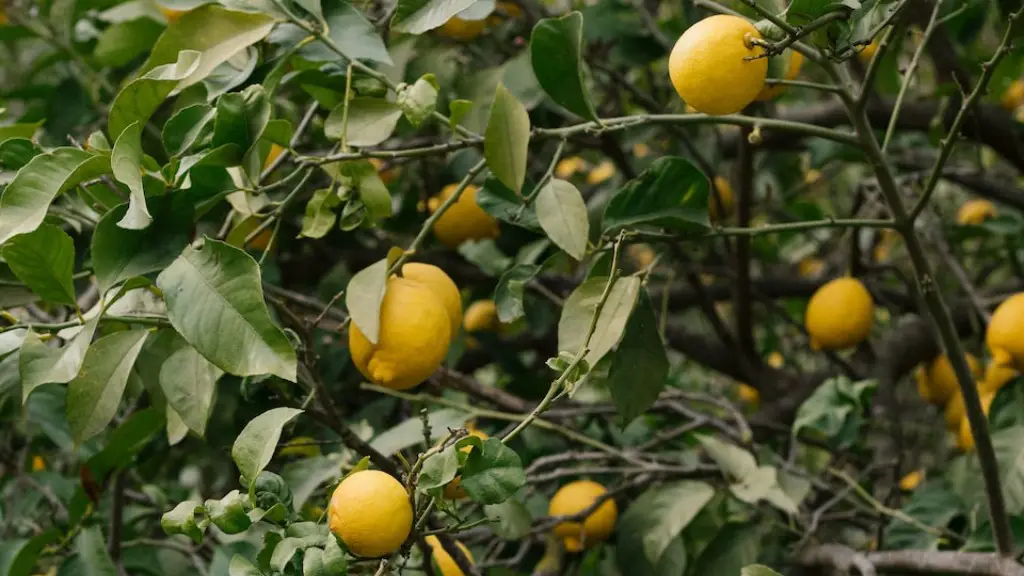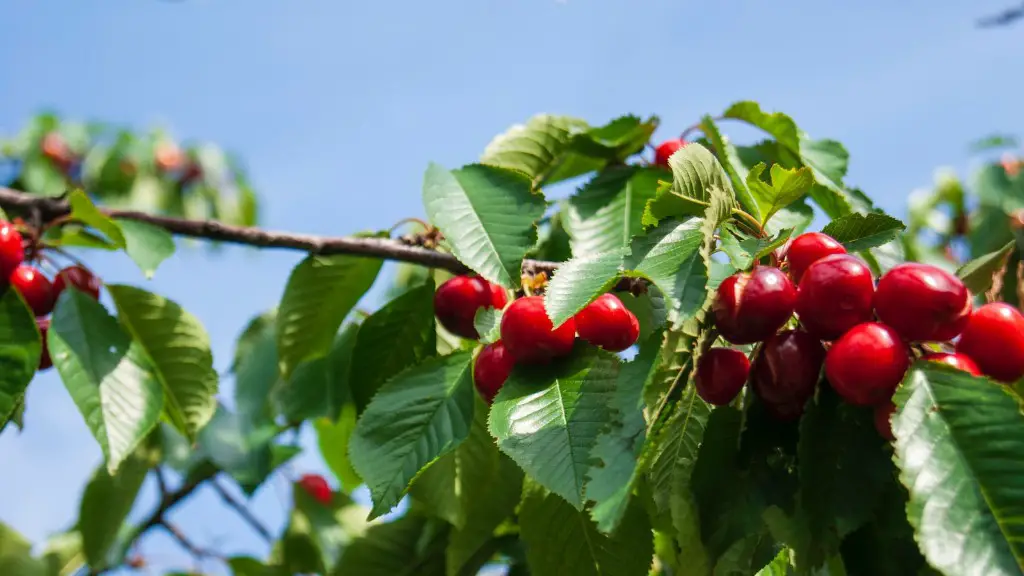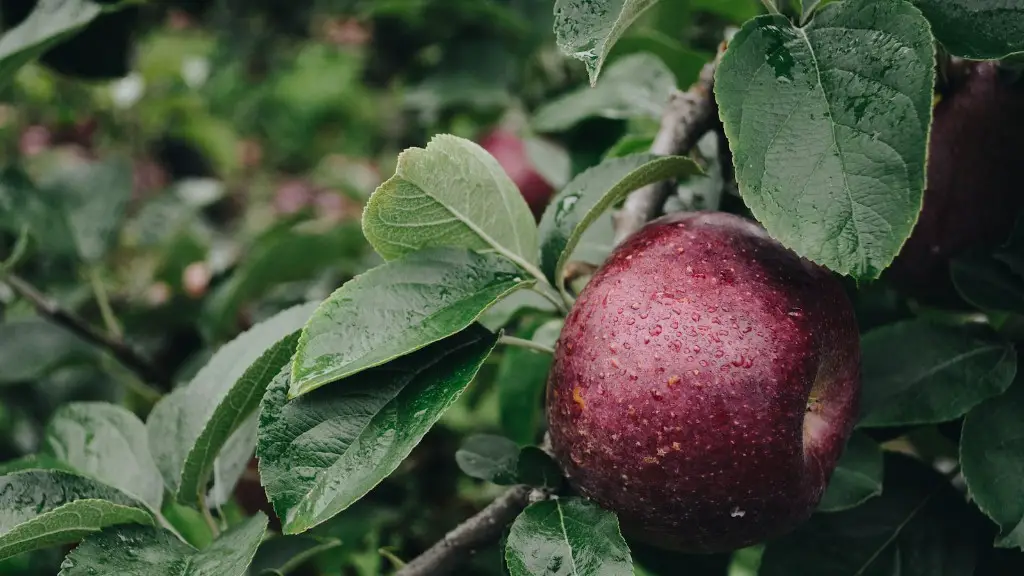Lemon trees have high soil requirements, so it’s important to know what type of soil is best for growing them. Generally, a lemon tree needs good drainage, nutrient-rich alkaline soil, and plenty of organic matter for healthy growth and fruiting. Here is an overview of what type of soil is needed for lemon tree:
Texture: Lemon trees prefer soil that is more sandy than clayey. A sandy loam is ideal, as it drains well but still retains moisture and nutrients. Avoid clay or very sandy soil, as they can cause water retention, which can lead to root rot.
pH: Lemon trees need a slightly alkaline soil with a pH level of about 7.3 to 7.5. Take a soil sample and have it tested to determine the soil’s pH level before planting. If needed, add lime to the soil to increase the pH level.
Organic matter: Adding organic matter to the soil is important for optimal drainage, as it helps prevent soil compaction. Compost, manure, and leaf mold are all great additions that will help aerate the soil and retain moisture. Be sure to mix the organic matter in well with the existing soil.
Fertilizers: While lemon trees do benefit from fertilizers, too much can cause more harm than good. A high-nitrogen fertilizer can help the tree reach its full potential, while a balanced fertilizer with macro dust can help maintain a healthy balance of nutrients. If you decide to fertilize, use a low-nitrogen fertilizer in early spring, followed by more applications of low nitrogen throughout the summer and early fall.
Watering: Lemon trees need regular watering, so pay close attention to the soil’s moisture level. The soil should be kept moist but not soggy, as it is important for avoiding root rot. You may need to water every day during hot months, but be sure to check the soil’s moisture levels before watering.
Mulching: Mulching your lemon tree can be beneficial for soil temperature and moisture levels, as well as for keeping weeds away. Be sure to use an organic material, such as bark chips or grass clippings. Keep the mulch at least two inches away from the tree’s trunk to prevent fungal diseases.
Container Gardening
If you do not have the right type of soil in your yard, container gardening is an option. For a lemon tree, it’s best to choose a reasonably large container that can hold a minimum of 10 gallons of soil. A container also ensures good drainage, as you can set it on stones to promote rapid water runoff. You will need to choose a potting soil that has the required pH level and is well-draining, as these are important characteristics for lemon tree growth. You will also need to fertilize often to provide the tree with the necessary nutrients.
When growing a lemon tree in a pot, it’s important to remember that the soil can dry out quickly, especially during hot months. For this reason, you will need to water often to keep the soil moist, and you should also apply mulch to the top of the soil to help it retain moisture. Lastly, you will need to repot your lemon tree in a larger container every few years to ensure optimal growth.
Tips for Planting
When planting, be sure to bury your lemon tree in the soil up to the first branch line. This will ensure that there is plenty of root system to access water and nutrients. Once the tree is planted, water it thoroughly, and then place a layer of mulch around the base of the tree to help promote healthy growth.
You should also prune your lemon tree regularly to remove dead branches and encourage new growth. Pruning should be done in late winter or early spring before new growth begins. Doing this will help maintain a healthy tree and will also help promote the production of lemons.
Finally, remember that your lemon tree needs protection from frost, especially in colder climates. If frost threatens, cover the tree with a frost cloth or use a warm-air blower to keep the temperature up. This will help protect the tree from the damaging effects of frost.
Pest and Disease Control
Lemon trees can be susceptible to various kinds of pests and diseases, so it’s important to maintain a regular spraying schedule. Be sure to use an organic insecticide, as this will help protect your tree from the effects of chemical fertilizers and pesticides. You should also keep an eye out for signs of pests and diseases, such as yellow leaves, discoloration, webbing, or spots on the fruit.
If your lemon tree does become infected, the best course of action is to prune away any diseased or dead branches and leaves. This will help keep the infection from spreading and will also help promote healthy new growth. You may also want to use a fungicide on the tree if it continues to show signs of infection.
For prevention, there are a few things you can do. Be sure to keep the tree well-watered, as drought can leave it susceptible to disease. You should also inspect it regularly for signs of pests and disease and prune back any dead branches. It’s also important to keep the soil healthy, by adding plenty of organic matter to the soil and avoiding overfertilizing.
Harvesting Tips
For an optimal harvest, you should wait until the fruit is ripe before harvesting. Ripe lemons should be firm and heavy for their size, with a bright yellow color and some oil droplets on the skin. It’s best to cut the fruit from the stem rather than pull it off, as this will help prevent infection.
You should also pick lemons before they over-ripen and fall off the tree. Over-ripe lemons will start to soften, lose their flavor, and be more prone to rot or insect damage. If you need to store your lemons, put them in the refrigerator, where they will last for up to four weeks.
When harvesting, you should use a pair of pruning shears and cut the stem close to the fruit. Be sure to wear gloves when harvesting, as the oils in the skin can cause irritation, and wear long sleeves and pants as a precaution against scrapes or scratches.
Conclusion
Lemon trees need well-draining, nutrient-rich, alkaline soil to grow and produce fruit. Taking the necessary steps to ensure that your soil meets the lemon tree’s needs is an important part of being a successful grower. From soil preparation to container gardening and harvesting, these tips will help you grow a healthy, productive lemon tree.



